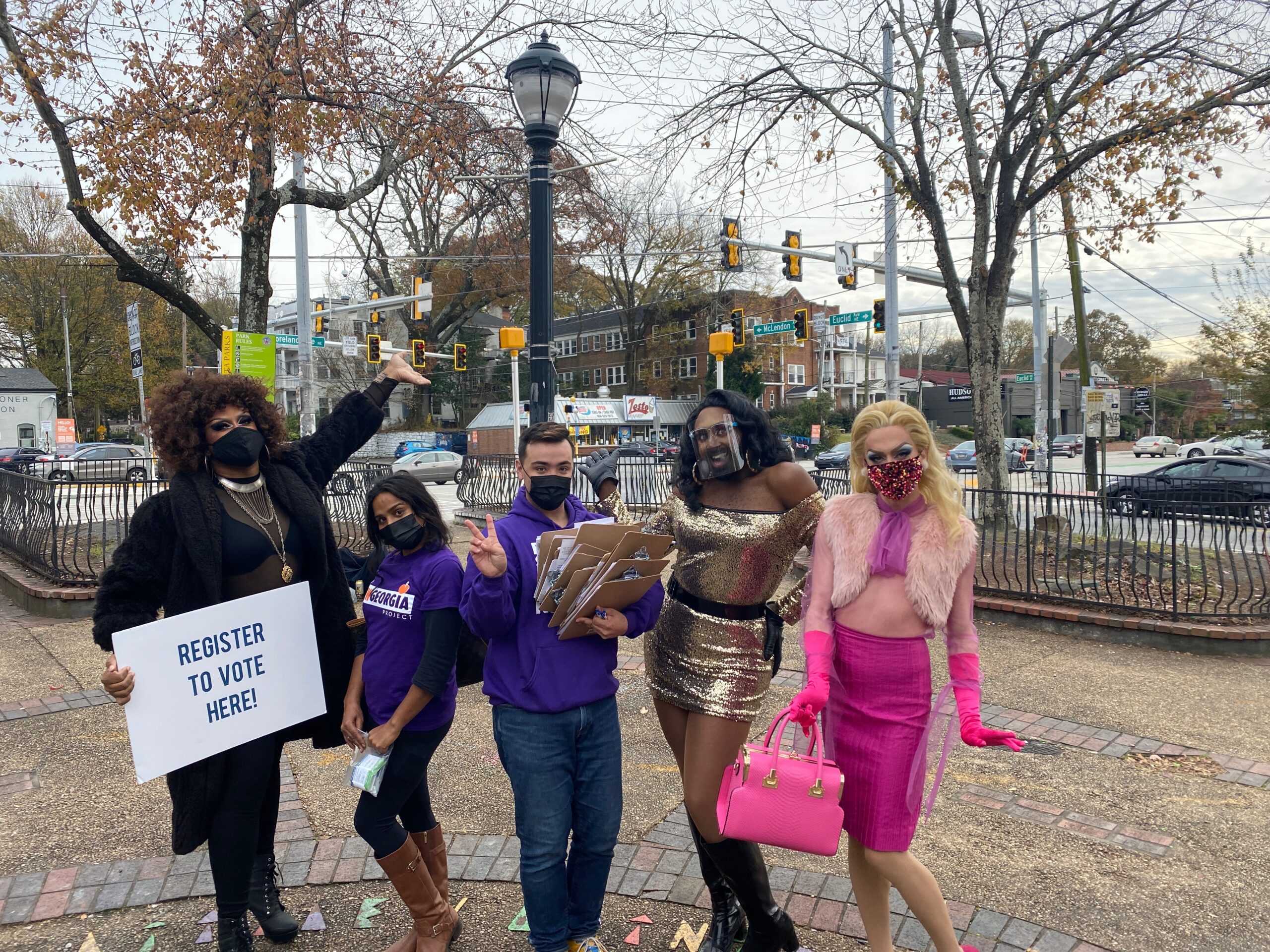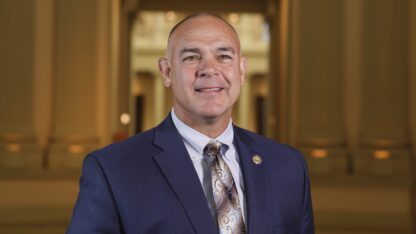The morning Drew West went to vote early in Georgia’s runoff election, she woke up feeling anxious.
“I just kept thinking someone was going to come along and say, ‘No, no, you’re not the person that’s supposed to be here,’” she said.
West is transgender and identifies as a woman. She’s one of nearly 11,000 trans people in Georgia and nearly 400,000 across the U.S. who are eligible to vote but don’t have state IDs that accurately reflect their gender. West’s license still has her legal name and marks her gender as male.
This mismatch could have presented a logistical nightmare for West at the polls. To cast a ballot in person in Georgia, voters are required to present a government-issued photo ID. If poll workers think there’s a mismatch between your appearance, ID, or voter registration, then they may stop you from voting.
Election officials in Fulton County, where West votes, say they train poll workers not to check an individual’s gender marker. But each county trains workers differently, and in Georgia, there are 159 counties.
According to a 2020 study by the Williams Institute, approximately 55% of the state’s trans population don’t have IDs that affirm their gender. Advocates say this is because of Georgia’s long and expensive legal processes, which have only become more inaccessible with courts closing or limiting operations during the pandemic.
To change your name, it costs around $200, and you’re required to run a notice of your name change once a week for four weeks in your county’s newspaper. To change your gender marker, you have to provide proof of affirmation surgery, which often is not accessible nor wanted. West, for instance, takes hormones. She hasn’t had affirmation surgeries and isn’t interested in pursuing them.
Feroza Syed, a real estate broker and political activist, transitioned nearly twenty years ago in Atlanta. It took her nearly six months to update her license.
“It was so frustrating because it put me in so many physical, harmful situations: Whenever I was at a Kroger or I was writing a check or every time I went to a bar or a restaurant and I got ID-ed, it always put me in a position of outing me,” Syed said.
The problems for trans people and IDs run even deeper than the trauma and dysphoria that often accompanies the use of a non-affirming ID, according to Syed. And because of the long list of documents required to get a state ID–social security card, two documents of residency — trans people on the margins, those experiencing homelessness, for instance, are oftentimes unable to obtain a state ID in the first place.
“It’s breaking people down,” Syed said. “You are hurting people and making them feel worthless and as if their life and their vote and their voice does not matter.”
Bentley Huggins, who is nonbinary and works with the New Georgia Project, has a term for this type of disenfranchisement. Huggins called it “cultural disenfranchisement,” and said it’s the reason many trans people simply opt out of voting.
“The conscious choice of everyone in power leaving our communities out of the conversation creates a sense of a lack of agency and a lack of belonging that just builds and builds upon itself,” Huggins said.
According to Huggins, a big part of the problem is a lack of meaningful inclusion by the Democratic party. This is something Huggins experienced first hand when they started working in politics.
“The queer magic I felt inside of me I had to reserve it,” Huggins said. “Because there’s an archetype that works well in navigating the political space in Georgia: straight passing, white passing, just passing.”
When West voted this past month, she faced a similar dilemma. Should she tone down her femininity, her gender identity, in order to more closely match her state ID?
It only took her a minute to decide. She put on her chunky stilettos and blow-dried her hair to wear it down.
“I didn’t want to try and present as something that I wasn’t,” West said.
Though when she approached the poll worker at State Farm Arena, West made sure to speak as little as possible. Her lower voice is what gets her misgendered the most, she said.
“When I sat down, I handed over my I.D. and signed things, and then when I was done, I very, very quietly said thank you,” West said.
Ultimately, West was allowed into the voting booth without anyone questioning her identity. She hopes one day this outcome will be a given.










